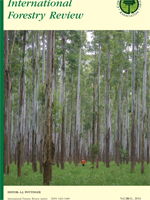The furniture industry is the most labor-intensive and the most important forest industry for small and medium-sized enterprises (SMEs) in Indonesia. Power imbalances among actors participating in furniture value chains jeopardize the sustainability of the furniture industry. Regional and global trade agreements could worsen the situation of SMEs. From 2008 to the present, participatory action research (PAR) was conducted on furniture value chains in Jepara District to develop a ten year strategic roadmap. The multi-level governance (MLG) involves complex interactions of state, private and civil society actors at various levels, and institutions linking higher levels of social and political organization. The multi-year roadmap process facilitated a more complex approach to MLG which led to a better understanding of how policies work as instruments of governance within systems of power and authority. The roadmap process strengthened small-scale producers' bargaining positions and improved trust with local government authoritiesto achieve sustainable development goals.
How to translate text using browser tools
1 December 2016
Multi-Stakeholder Processes to Strengthen Policies for Small and Medium-Scale Forestry Enterprises in Indonesia
D.A. Wardell
ACCESS THE FULL ARTICLE

International Forestry Review
Vol. 18 • No. 4
December 2016
Vol. 18 • No. 4
December 2016
district law
Furniture
Jepara
participatory action research
politics




